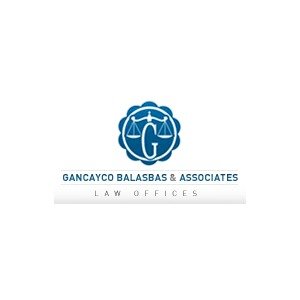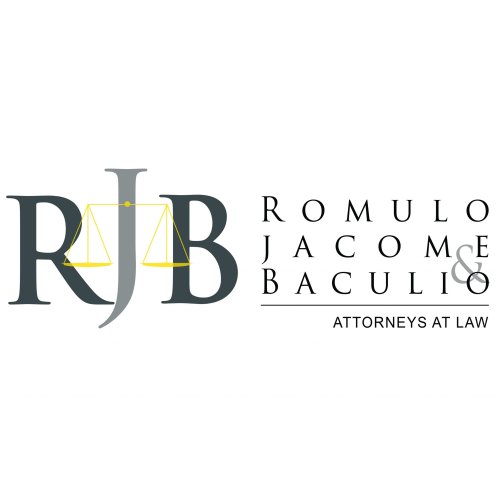Best Corporate & Commercial Lawyers in Manila
Share your needs with us, get contacted by law firms.
Free. Takes 2 min.
List of the best lawyers in Manila, Philippines
About Corporate & Commercial Law in Manila, Philippines
Corporate & Commercial law in Manila covers the legal framework within which businesses operate in the Philippines' bustling capital. This area of law addresses a wide spectrum of activities, including company formation, governance, acquisitions, business contracts, regulatory compliance, joint ventures, dissolution, and more. Manila, being the economic hub of the country, sees a significant concentration of corporate activity, making commercial law a dynamic and essential field for both local and foreign investors looking to establish or expand businesses in the region.
Why You May Need a Lawyer
There are many scenarios where seeking legal advice from a corporate & commercial lawyer in Manila becomes essential. Some of the most common situations include:
- Setting up the right type of business structure, such as a corporation, partnership, or sole proprietorship
- Drafting or reviewing contracts with suppliers, clients, employees, or partners
- Ensuring compliance with local and national business regulations
- Handling mergers, acquisitions, or restructuring of businesses
- Resolving business disputes or shareholder disagreements
- Securing permits, licenses, and approval from government agencies
- Protecting intellectual property rights
- Navigating foreign ownership restrictions and investment requirements
- Liquidating or closing a business correctly
- Dealing with labor and employment concerns within the company
Local Laws Overview
Manila, as part of the Philippines, follows a legal system influenced by both civil and common law traditions. The key laws and regulations governing corporate & commercial activities in Manila include:
- Corporation Code of the Philippines (Republic Act No. 11232) - Governs the formation, operation, and dissolution of corporations in the Philippines.
- Foreign Investments Act (Republic Act No. 7042, as amended) - Details allowable participation of foreigners in business and the requirements for investment.
- Retail Trade Liberalization Act - Regulates foreign participation in the retail trade.
- Philippine Competition Act - Ensures fair competition and penalizes anti-competitive behavior.
- Data Privacy Act - Regulates the handling of personal data by businesses.
- Labor Code of the Philippines - Sets out labor relations and employment standards.
- Tax Code - Outlines the taxation responsibilities of businesses.
- Intellectual Property Code - Protects trademarks, patents, and other intellectual property.
Local ordinances of Manila City and regulations from government agencies such as the Securities and Exchange Commission (SEC), Department of Trade and Industry (DTI), and Bureau of Internal Revenue (BIR) also play critical roles in business operations.
Frequently Asked Questions
What is the difference between a corporation and a partnership in the Philippines?
A corporation is a separate legal entity distinct from its owners, providing limited liability to shareholders and perpetual succession. A partnership is a business formed by two or more persons, where profits and liabilities are shared according to the partnership agreement. Corporations offer greater protection for personal assets, while partnerships are simpler to form and operate.
Are foreigners allowed to own businesses in Manila?
Yes, but there are restrictions. Certain industries are reserved for Filipinos or have foreign ownership limits. The Foreign Investments Negative List specifies sectors with restrictions, while others allow up to 100 percent ownership subject to minimum capital requirements and compliance with regulatory agencies.
How do I register a business in Manila?
Business registration usually involves reserving a business name, registering with the Securities and Exchange Commission (for corporations and partnerships) or Department of Trade and Industry (for sole proprietorships), obtaining a Barangay clearance, mayor's permit, BIR registration, and registering with SSS, PhilHealth, and Pag-IBIG.
What are the common sources of business disputes?
Disputes often arise from contract breaches, shareholder disagreements, labor issues, intellectual property misuse, regulatory compliance problems, and payment defaults. Clearing out terms in written agreements and seeking legal consultation can prevent many conflicts.
What taxes do Manila businesses need to pay?
Businesses must pay income tax, value-added tax (or percentage tax, depending on revenue), withholding taxes, local business taxes, and registration fees. The specific taxes payable depend on the type and size of the business.
How can intellectual property be protected in the Philippines?
Business owners should register their trademarks, patents, and designs with the Intellectual Property Office of the Philippines. Proper registration gives legal protection and remedies against infringement.
What are the requirements for corporate governance?
Corporations are required to have by-laws, a board of directors, regular stockholders and board meetings, and proper corporate records. The SEC regulates corporate reporting and compliance to ensure transparency and accountability.
Can I close my business any time?
Closing a business is a formal process involving clearance of tax liabilities, deregistration from regulatory agencies, liquidation of assets, settlement of obligations, and, for corporations, approval from the SEC. Proper legal guidance ensures all requirements are met.
What permits are needed to operate in Manila?
Typical permits include barangay clearance, mayor's permit, BIR permit, and clearances from special regulatory agencies, depending on the nature of the business. Certain industries also require specific additional licenses.
How do I resolve a commercial dispute without going to court?
Parties may opt for alternative dispute resolution methods such as mediation, arbitration, or negotiation. These methods are often faster and less expensive than formal litigation and are encouraged by Philippine law.
Additional Resources
Below are some organizations and government agencies that provide information and assistance for corporate & commercial matters in Manila:
- Securities and Exchange Commission (SEC)
- Department of Trade and Industry (DTI)
- Bureau of Internal Revenue (BIR)
- Intellectual Property Office of the Philippines (IPOPHL)
- Philippine Economic Zone Authority (PEZA)
- Business Permit and Licensing Office of Manila City Hall
- Philippine Competition Commission (PCC)
- Integrated Bar of the Philippines (IBP) for lawyer referrals
- Philippine Chamber of Commerce and Industry (PCCI)
Next Steps
If you need legal advice or assistance related to corporate & commercial matters in Manila, consider the following steps:
- Identify your specific legal concern or business need
- Gather all relevant documents, such as business registration papers, contracts, and correspondence
- Contact a qualified corporate & commercial law firm or lawyer who specializes in Manila regulations
- Consult with a legal professional to understand your rights, options, and obligations
- Work closely with your lawyer throughout the process for compliance and risk management
- Keep up to date with any changes in corporate laws, tax regulations, and government requirements
Legal requirements in the Philippines can be complex and constantly evolving. If in doubt, always seek proper legal guidance to ensure your business interests are protected and compliant with all applicable laws.
Lawzana helps you find the best lawyers and law firms in Manila through a curated and pre-screened list of qualified legal professionals. Our platform offers rankings and detailed profiles of attorneys and law firms, allowing you to compare based on practice areas, including Corporate & Commercial, experience, and client feedback.
Each profile includes a description of the firm's areas of practice, client reviews, team members and partners, year of establishment, spoken languages, office locations, contact information, social media presence, and any published articles or resources. Most firms on our platform speak English and are experienced in both local and international legal matters.
Get a quote from top-rated law firms in Manila, Philippines — quickly, securely, and without unnecessary hassle.
Disclaimer:
The information provided on this page is for general informational purposes only and does not constitute legal advice. While we strive to ensure the accuracy and relevance of the content, legal information may change over time, and interpretations of the law can vary. You should always consult with a qualified legal professional for advice specific to your situation.
We disclaim all liability for actions taken or not taken based on the content of this page. If you believe any information is incorrect or outdated, please contact us, and we will review and update it where appropriate.
Browse corporate & commercial law firms by service in Manila, Philippines
Manila, Philippines Attorneys in related practice areas.

















